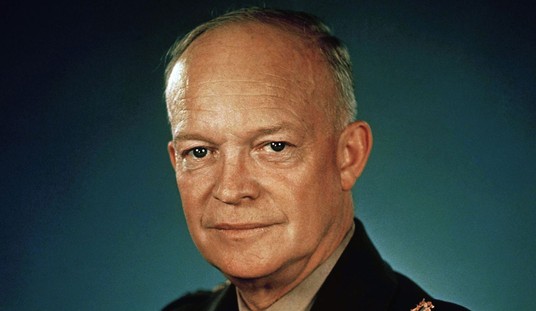This story in today’s Washington Post ought to give even the most ardent Rubio supporters pause:
Marco Rubio is a U.S. senator. And he just can’t stand it anymore. “I don’t know that ‘hate’ is the right word,” Rubio said in an interview. “I’m frustrated.”
This year, as Rubio runs for president, he has cast the Senate — the very place that cemented him as a national politician — as a place he’s given up on, after less than one term. It’s too slow. Too rule-bound. So Rubio, 44, has decided not to run for his seat again. It’s the White House or bust.
“That’s why I’m missing votes. Because I am leaving the Senate. I am not running for reelection,” Rubio said in the last Republican debate, after Donald Trump had mocked him for his unusual number of absences during Senate votes.
If I were a Rubio fan, which I’m not, this would worry me. A lot. For Rubio resembles nobody in our current political life as much as Barack Obama, another freshman senator who took almost no interest in the Senate and instead spent much of his one and only term planning a run for the presidency; so did Hillary Clinton, although she got sidetracked into the State Department when she lost to Obama in 2008.
But in many ways, Rubio is even more audacious than Obama. Obama was the hand-picked choice of the Chicago Machine, a non-entity back bencher in the corrupt state legislature suddenly elevated into a safe seat in the World’s Greatest Deliberative Body. Proving once again that any tomato can is electorally viable in Illinois.
Rubio, though, won a hard-fought Senate seat in Florida and for a time was a Tea Party/conservative Golden Boy. But he quickly showed his true colors as an amnesty backer with his participation in the infamous Gang of Eight scheme. And when that came a cropper, he pouted, retreated and then suddenly decided that what America really needs is him in the White House:
Five years ago, Rubio arrived with a potential that thrilled Republicans. He was young, ambitious, charismatic, fluent in English and Spanish, and beloved by the establishment and the tea party.
But Rubio had arrived at one of the least ambitious moments in Senate history and saw many of his ideas fizzle. Democrats killed his debt-cutting plans. Republicans killed his immigration reform. The two parties actually came together to kill his AGREE Act, a small-bore, hands-across-the-aisle bill that Rubio had designed just to get a win on something.
Now, he’s done. “He hates it,” a longtime friend from Florida said, speaking anonymously to say what Rubio would not. Which makes for an odd campaign message.
Rubio must convince voters that his decision to leave the Senate — giving up the power he already has — is actually a mark of character, a sign that he is too dedicated to public service to stay. Rubio is not a quitter, the argument goes. In fact, that’s precisely why he’s quitting this place. “He wouldn’t be doing what he’s doing now if he were a quitter,” said Norman Braman, a Florida auto dealer and one of Rubio’s longtime donors. Impatience had been a hallmark of Rubio’s career, for good and ill…
So it’s all the Senate’s fault, for not acknowledging the Boy Wonder quickly or enthusiastically enough. But there’s a phrase for this condition: a messiah complex, and haven’t we had enough of that lately? Besides, he’s already not doing the job he was elected to do, missing more than his fair share of votes and committee meetings. And where have we seen that before?
He skipped 10 percent of them in 2014 — making him one of the most absent senators, with the 88th-best attendance record, according to statistics kept by GovTrack.us. He began missing committee work, even on the subject he most identified with. In 2014, Rubio missed 34 of 68 committee hearings and meetings in the Foreign Relations committee, according to his office’s tally.
This is not to say that Rubio doesn’t possess some formidable political skills, or that part of his campaign program isn’t attractive. But we really do need to be wary of yet another young man in a hurry, especially as his quick rise (to be sure, not quite as quick nor as occluded as Obama’s) means we really don’t have much of a sense, on the national level, what a Rubio presidency would portend. Other than that it would be “historic.”
Then again, so would a Ted Cruz presidency. Or a Hillary Clinton presidency. Or a Ben Carson or Carly Fiorina presidency.But so what? The media long ago cheapened the meaning of the word to signify something or someone that conforms to their policy preferences; for them, the antonym of “historic” is “aberrational.”
Asked about his absences recently by Matt Lauer on NBC’s “Today” Show, Rubio said: “My ambitions aren’t for me. My ambitions are for the country, and Florida.” If he is elected to the White House, he added, “we can begin to fix some of these issues that I’ve been so frustrated we’ve been unable to address during my time in the Senate.”
Color me skeptical. If Rubio really wanted to serve the country, he wouldn’t go about it this way: double-crossing his former Florida mentor, Jeb Bush; making the GOP voters who put him in the Senate look like fools; and jeopardizing the Republicans’ control of the Congress to further his own ambition. His frustrations with the glacial pace of the Senate may be understandable, but they don’t bode well for how he would handle the infinitely greater duties of the Oval Office.
UPDATE: Jeb! Bush agrees with me:
Jeb Bush’s campaign team is striking at presidential rival Marco Rubio (R-Fla.) in its harshest terms yet, telling wealthy donors, “Marco is a GOP Obama.” The provocative charge is part of a 45-slide PowerPoint presentation that is being shown to donors assembled at a Houston hotel for a two-day Bush campaign retreat.
The section about Rubio — presented on Monday morning by Bush’s campaign manager, Danny Diaz — suggests that Bush’s team views his fellow Floridian as its most serious rival in the establishment lane for the Republican nomination. On a slide titled “Experience Matters,” Diaz states: “We need to offer a contrast to the current President. Hillary will pitch competence and experience. Marco is a GOP Obama.”
The slide continues: “Rubio and President Obama have strikingly similar profiles: first-term senators, lawyers and university lecturers, served in part-time state legislatures for eight years, had few legislative accomplishments, and haven’t shown much interest in the process of advancing legislation and getting results.”
I suspect Rubio will rue the day he got crossways with the Bush family.











Join the conversation as a VIP Member